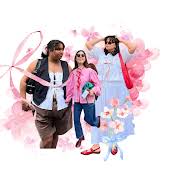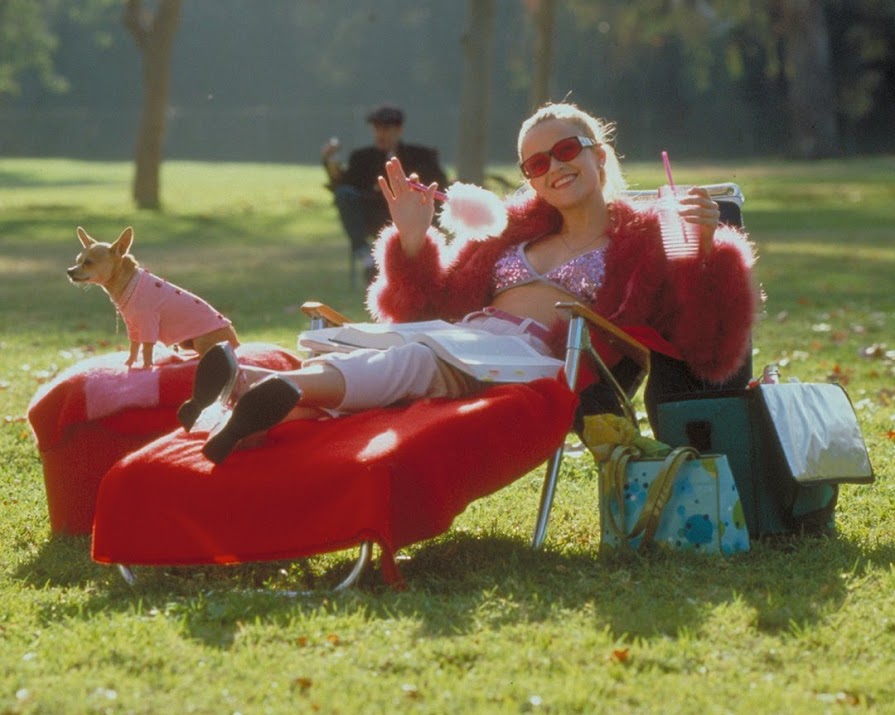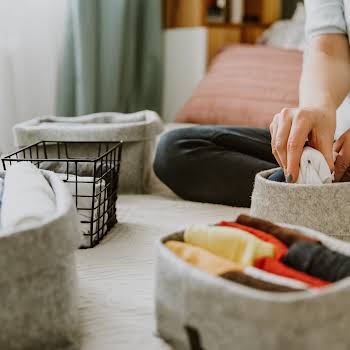Girl maths, girl dinner, and the girl-ification of online trends
By Sarah Gill
27th Sep 2023
27th Sep 2023
Where some argue that these trends are infantilising, misogynistic and downright patronising, others believe they constitute a reclamation of sorts, a small way of bucking patriarchal stereotypes. Let’s unpack TikTok and Gen Z’s girl-ification of women…
Let’s call a spade a spade: TikTok has been rotting brains since its inception, and I include my own in that. It’s annihilating our attention spans, making our heads spin with the rate at which it chews up and spits out new micro-trends, and cursing us with a whole new language of internet speak only the ultra-online are fluent in. But it’s funny and quite interesting and somehow very difficult to delete.
It’s easy to write off online trends as ‘not that deep’, superficial or redundant, but the fact of the matter is that they’re not only informing the discourse and zeitgeist, but melding the minds of upcoming generations. It’s for this reason that the current trends of ‘girl maths’, ‘girl dinner’ and the like are jarring with me so much.
If you’re not abreast of the conversation (well done, no need to be smug about it), here’s a little crash course.
Advertisement
Girl dinner
A TikTok trend that involves creators taking a snapshot of their evening meal on those days where the thought of grocery shopping, taking out pots and pans, and being left with dishes to do just seems far too daunting. It’s something of a universal experience, feeling a little lazy come mealtime and opting to sustain yourself with an assortment of tasty bits and pieces piled up on a plate. As queen of my heart Nigella Lawson so eloquently put it, it’s essentially just picky bits, but rebranded to be for the girls.
And we call them Picky Bits https://t.co/OfdvS8Qm8r
— Nigella Lawson (@Nigella_Lawson) July 10, 2023
The hashtag #girldinner has amassed 2 billion views, the ‘girl dinner’ audio has been used for 415.5K posts (it was posted in June), and there’s even a dedicated filter to generate what ‘girl dinner’ you would be, if you were a girl dinner. All round was head-melting stuff, and initially, it was critiqued for the quickness with which it descended into pro-ano territory. People conflated it with starving yourself, and any bit of fun associated with the trend quickly dissipated.
Fans of the trend say that it directly challenges the expectations and stereotypes of the 1950s housewife, showing us just how far we’ve come by empowering us to buck the patriarchal demands of watching what we eat and having dinner on the table. One Reddit user wrote: “I think there’s a lot of pressure on women to always be doing their best, and breaking the ‘veil’ of perfectionism in even the smallest way is something that a lot of women gravitate towards.”
Advertisement
But does dubbing the universal experience of throwing together a quick meal on the days you’re not up to being in the kitchen ‘girl dinner’ really do all of that? Couldn’t it be argued that what it’s actually doing is linking femininity and girlhood even more inextricably with frivolity?
Girl maths
This one can be traced back to a segment on a New Zealand radio show that went viral online showing the hosts justifying the expensive purchases of their listeners with what they’ve coined, ‘girl maths’. The logic ranges from the genuinely legitimate cost-per-use mindset, to the tad bit more self-deceiving ‘money from a returned item is free money’ philosophy – it’s utterly hilarious and, on the face of it, pretty damn harmless.
@fvhzm Using #girlmath to make an Italian silk dress basically free ??? Let us know if you need help justifying your spending ? #itsbasicallyfree
The conversation surrounding this trend has grown legs, and seeped into the murky territory that is: women are inherently bad with money. We’re stereotypically bad with numbers and budgeting and love buying silly little expensive things that will make our husbands sigh. It’s a deep-rooted and heavily patronising attitude, especially in light of the fact that women now hold more purchasing power than men. Or is that the whole point?
Advertisement
While it may be read as tongue-in-cheek irony – that we’re in on the joke so we’re allowed to perpetuate it – it can also feed into a more negative side of things. Why should women, or girls, as it were, feel the need to justify spending their own money? Or feel guilty about it in the first place, for that matter? Can’t we spend our money on seemingly ‘silly’ things in peace? As the saying goes, let’s support women’s rights, and women’s wrongs.
Maiden, mother, crone
From the media we consume to the internalised attitudes we’re attempting to unpick, our culture is, unfortunately, quite anti-girl. From the subtle insult of being told you throw like a girl to the pink-washed hellscape associated with girlboss infamy, girliness has never been awarded the respect it deserves.
We’re told that our interests are foolish — guilty pleasure or typically female preference, what’s the difference? — and that there’s an inherent frivolity associated with girlhood. The question hangs in the air: Do these trends reinforce gender tropes, trivialise our experience, and infantilise women, or are they leaning into it, reclaiming it, and reimagining it?
We’ve spent so much of our lives being taught to feel embarrassed about being girly, to the point that many of us ended up growing up too fast in an effort to avoid it. A large part of the female experience is realising that existing as a woman in the world can be a very vulnerable thing, and that the hard corners of a patriarchal, capitalist society will chip away at your softness.
For many of the users that engage with these trends, I’m sure it’s not that deep. But for others, ‘girl dinner’ and ‘girl maths’ are the Gen Z-approved interpretations of the Millennial’s ‘adulting is hard’ lament. Between the pandemic, the exorbitant cost of living and the housing crisis, who could be blamed for feeling reluctant about stepping into adulthood, womanhood, and the real world at large? Holding onto the tendrils of girlhood is nothing to be ashamed of, but we need to be cognisant of the culture that informs our beliefs, and endeavour to separate internalised misogyny from genuine empowerment.
What say you?
Advertisement
Feature image via @legallyblondemovies























